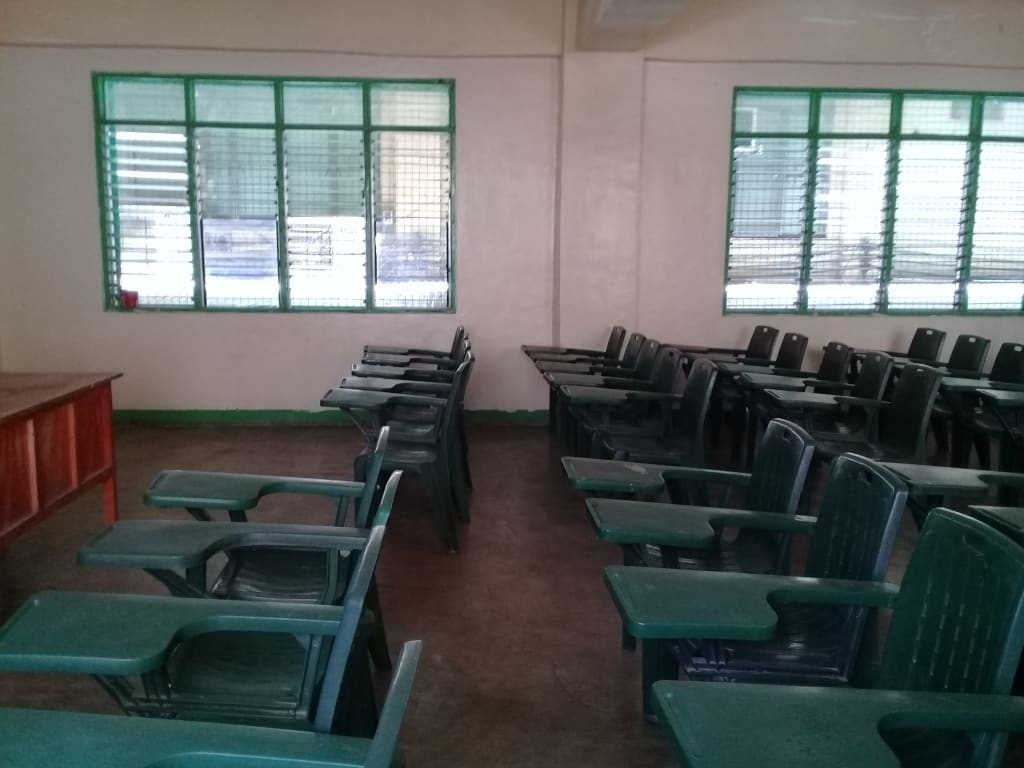Should we mass promote all students because of COVID-19?
Many students and progressives are calling for mass promotion and cancellation of online classes because of COVID-19. Should these demands be taken into consideration?

The global coronavirus pandemic completely shocked the entire world and changed things suddenly unlike any other event in human history. Shops either remained open at limited times or closed down, strict health and safety guidelines were implemented almost everywhere, gatherings had to be cancelled or suspended, many workers suddenly found themselves unemployed, and classes were also forced to be suspended. Just like work, education has forced itself to find ways to continue or studying would be sidestepped only until the risk of getting COVID-19 becomes lower. With that, schools and universities turned to online classes so that students could still continue learning from their homes while the coronavirus is still roaming around. However, many students were not happy with this idea, and they went on to campaign for mass promotion for all students amidst the pandemic. Are they right to fight for such idea?
To further explain how mass promotion works especially during the pandemic, let's say we have ten students in a class. The coronavirus then started to spread and those students were forced to stay at home and their classes were then suspended. The school where they study decided to mass promote them. This means that students would no longer be complied to finish all requirements and activities that they would need to take for their studies. With that, students would receive a passing mark and they would be eligible to move to the next school level.
While most students clamor for schools and universities to mass promote them as a consideration for the difficult times that everyone is going through now because of the COVID-19 outbreak, some oppose the idea, arguing that this should not be an "imposed compassion" and that students have a right to quality education regardless of the situation everyone is going through and that promotion based on academic performance is not a burden, but rather a right as stated by law. While these arguments do hold some substantial weight, calls for mass promotion is not that invalid either.
For one, socio-economic status is the greatest argument made in favor of mass promotion. While 80.1% of Filipinos use the internet according to Statista, accessing the internet is not that cheap. A one gigabyte prepaid internet promo that is valid for three days costs up to 50 PHP or 0.987 USD. Now that seems cheap, but these promos would not last enough for a five-week long online lessons, especially if video calls are involved. As for wired internet connections, a 1 MBPS internet plan could cost up to 999 PHP or 19.724 USD per month. In contrast, minimum wage earners in the Philippines received a monthly net pay of 5,922 PHP per month or 116.920 USD according to this Philippine Star article. With that, students and their families are forced to tighten their budget to cover their increasing expenditures, where internet connection for online classes also added up.
Another argument for mass promotion is that the trauma and fear of contracting the coronavirus makes students less comfortable when it comes to doing online lessons or learning all together. As previously mentioned, almost everyone is living in difficult times due to COVID-19 and many are becoming paranoid because of the increasing risk it poses to everyone. The death toll due to COVID-19, as well as the number of people getting infected, continuously rise by exponential levels every single day. This idea makes people, including students, less secure and less comfortable. None of them will know if they would be the next to get infected, even if they try to perform important precautions such as washing hands and practising social distancing outside their homes. The global COVID-19 outbreak has placed everyone in collective trauma, and its hard to function normally when the risk of getting infected by an highly contagious virus that could kill gets higher day by day. If there is an exceptional rule called "Pass by Catastrophe" where in students would automatically get passing marks if a catastrophic event, such as a fire or an earthquake, strikes a university, then perhaps a similar rule or exception could be given to students as well during the COVID-19 outbreak.
Online lessons also pose different challenges that are not present in face-to-face classroom settings. There are teachers who are not technologically capable to hold online lessons either due to lack of means, know-how, or both. Furthermore, there are certain instances online lessons would suddenly be interrupted by unforeseen situations such as power outages or when a student's internet connection would unexpectedly slow down or cut off. Even the nature of online lessons provides a hurdle in delivering lessons to students, as not all school activities such as exercises for PE classes or lab activities for chemistry lessons can be performed through online classes.
And finally, the consequences of mass promoting students amidst a pandemic would not become as huge as a mass promotion during a normal school year. If a student continues on his or her usual study habits that caused him or her to fail her studies even before the pandemic struck, teachers would not be liable of such behavior and its negative consequences would be experienced most by the student. If a student failed to work hard in studying so that he or she could get a passing grade and continued on with that attitude, he or she would then continue to fail throughout much of her studies and even beyond that, and teachers could and should not get the credit for it, as it was understood that this student was mass promoted due to an unexpected situation, such as this coronavirus pandemic.
While mass promotion could greatly benefit students and their families, it would be teachers and other non-teaching staff who would be most hit, as this would mean less work for them and therefore less means for them to get revenues. This should also be placed into consideration when schools and universities decide on mass promotion because of COVID-19. Nevertheless, teachers and non-teaching school staff should be given financial support especially by the government regardless of whether they get to conduct online classes or not. Everyone is having a tough time living through this outbreak, and with that we should exercise some compassion over one another. Because it's not grades or your overall intelligence that would be remembered, but rather how you treat your fellow man and woman.
About the Creator
Jakeson Eudela
I am a Filipino-Taiwanese senior high school graduate currently residing in Parañaque City and a freelance fiction and non-fiction writer.






Comments
There are no comments for this story
Be the first to respond and start the conversation.